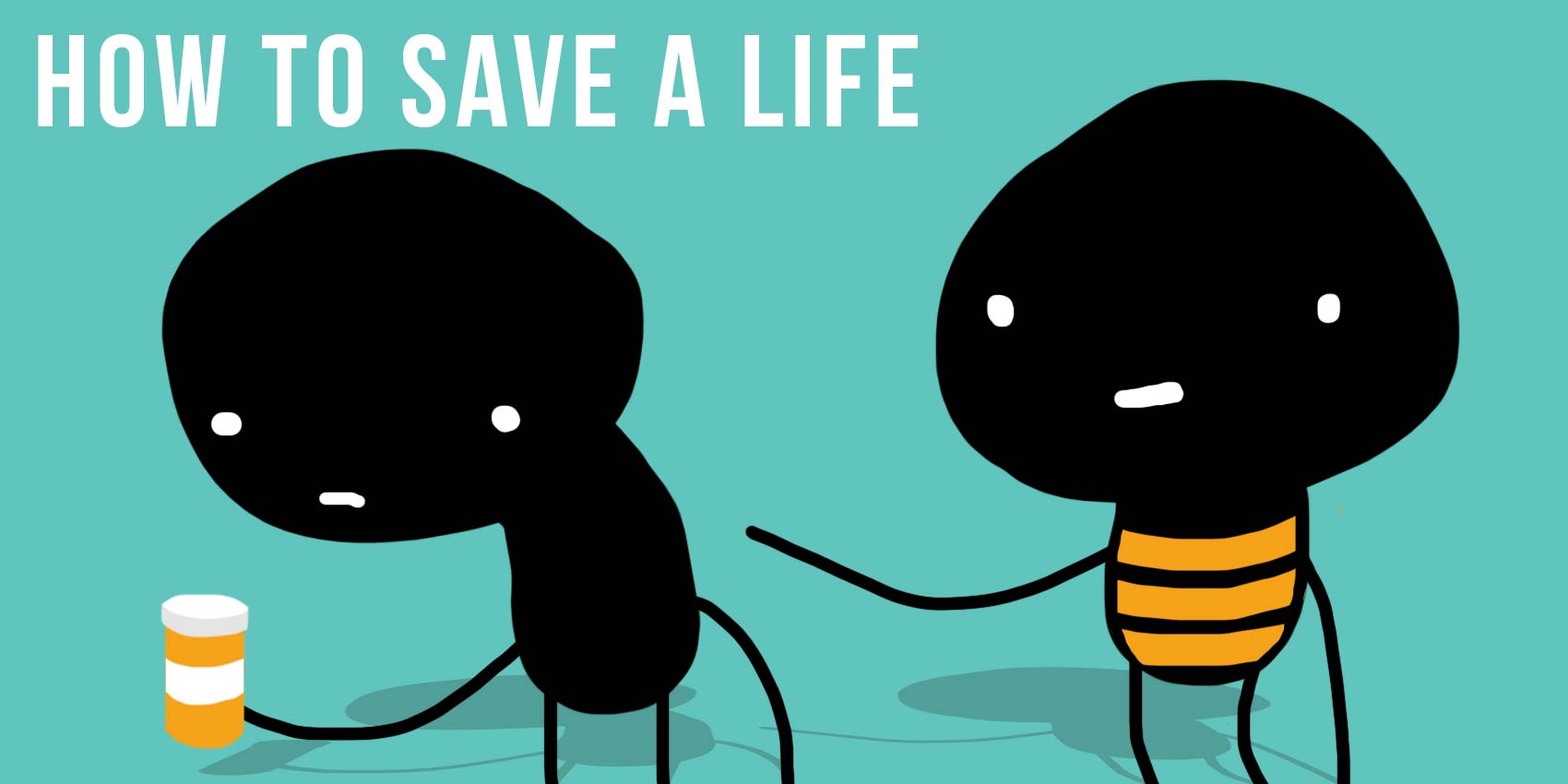31 Aug How to save a life


DID YOU KNOW? Opioid abuse is linked to mental health concerns such as: mood disorders, major depressive disorder, bipolar disorder, anxiety disorders, suicide ideation.
As you have learned, people overdose when they ingest/consume too much of a substance for their body to properly metabolize (meaning digest) and therefore the body begins to fail. Death can occur.
“Common symptoms of overdose, which can result in death if not treated, include: extremely pale face, clammy skin, limp body, blue or purple fingers or lips, difficulty awakening from sleep, unable to speak, slowed or stopped breathing, slowed or stopped heartbeat, vomiting, a decrease in the amount of oxygen that reaches the brain (i.e., hypoxia), and gurgling noises during labored breathing.” (Source: Instructional Resource Packet for Heroin & Opioids)
Recognizing that someone has overdosed on heroin specifically can be difficult. However, signs that are a warning that a person is in distress (from opioid use or another drug) are:
- unconsciousness or being unresponsive
- shallow breathing and, of course, no breathing
- pupils (the dark center of your eyes) that are like pinpoints rather than normal size
If someone has these symptoms, do not leave the person alone and call 911 immediately. If you suspect that these symptoms are from a drug overdose say so to the first responder.
Knowing these signs could help you to save a life. With heroin and other opioids, an overdose can be reversed if medicinal drugs are administered quickly enough. Narcan/Naloxone are two such drugs drugs that doctors prescribe to help people who overdose, or are very sick, from heroin and other opioid use. Basically, they reverse the overdose when administered in time.
However, the standard dose of Naloxone is often not strong enough to save al life when synthetic opioids have been used, especially fentanyl, which is claiming the most lives.
If you are waiting for a first responder and know that someone has overdosed on an opioid, CPR is recommended since an overdose of sedatives and opioids decreases breathing and heart function—victims literally choke to death because they can’t breathe in enough air to sustain their organs.
The best way to save a life? Be informed. Be like Nicki and don’t be afraid to ask your friends questions. If you think someone needs more information and guidance, share this website and/or encourage them to ask their doctor more questions. Help them to learn that addiction happens all too often and teens are especially susceptible. That slippery slope is out there.
The best way to not become addicted is to follow the label instructions and stop taking the painkillers as soon as possible. If you suspect that a friend is using/abusing prescription drugs, say something!
For more information on addiction, please see the main post on it here.

DID YOU KNOW? The chance of using opioids long term increases dramatically after just five days of use. Yes. 5! Thus, if you have to take pain medication for anything, try to stay under the five day mark if you possibly can!




Post Question:
Do you feel like you would know what to do in a possible drug overdose situation? How would you feel?
Answer the post question here
What's being said